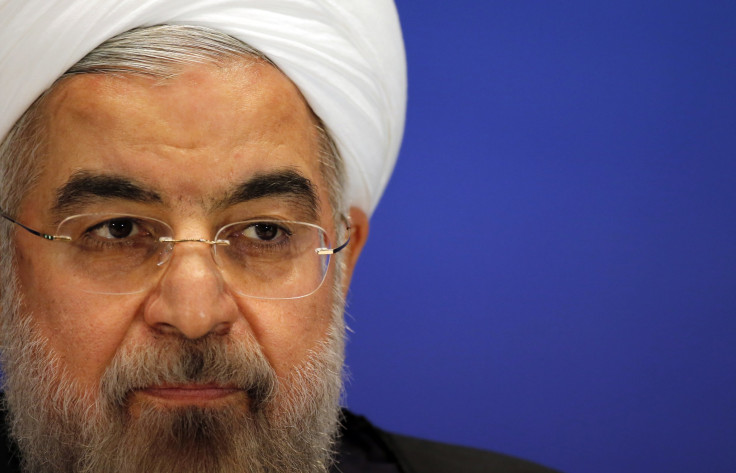Amid New Attacks On Iraqi Shiites, Iran's Rouhani Pledges More Support To Iraqi Military In Fight Against ISIS

After a string of deadly attacks on Shiite neighborhoods in Baghdad, the likely work of the Islamic State group, Iraq's neighbor Iran has made an official promise of help against the Sunni militants. Iran has been running special forces operations against ISIS for some time, and on Tuesday President Hassan Rouhani said Iran would boost its support by providing more military advisers and weapons. The statement came during Iraqi Prime Minister Haidar al-Abadi's visit to Tehran.
Rouhani said Iran had supported Iraq "from the first day and will remain on that path until the last day," according to a report by the official Islamic Republic News Agency. The two countries secured a strong alliance following the U.S. invasion that overthrew Iraqi President Saddam Hussein in 2003. Saddam, a Sunni, ruled over a country that is majority Shia, like Iran.
"Choosing Iran as my first destination after taking office indicates the depth of ties," Abadi said during the meeting, according to IRNA. "Terrorism is a threat to all regional countries, and we are sure Iran will stand by us."
Ahead of his visit to Tehran, Abadi had ruled out a foreign intervention against IS militants, saying he would rather rely on local militias. But many of those militias, mostly Shiite, are backed by Iran.
The Iranian Revolutionary Guard Corps trained thousands of Shiite militiamen in Iraq in the decade since Saddam was toppled. At beginning of the advance of the Islamic State group, or ISIS, in Iraq in June, Rouhani sent members of Iran's elite Quds Force to help its Shiite ally in Baghdad fight the Sunni militant group.
Rouhani said in July that Iran would consider working with the U.S. in Iraq to defeat ISIS, but it is still not clear whether the two, which have many conflicts and no diplomatic relations, are coordinating their efforts on the ground.
© Copyright IBTimes 2024. All rights reserved.











